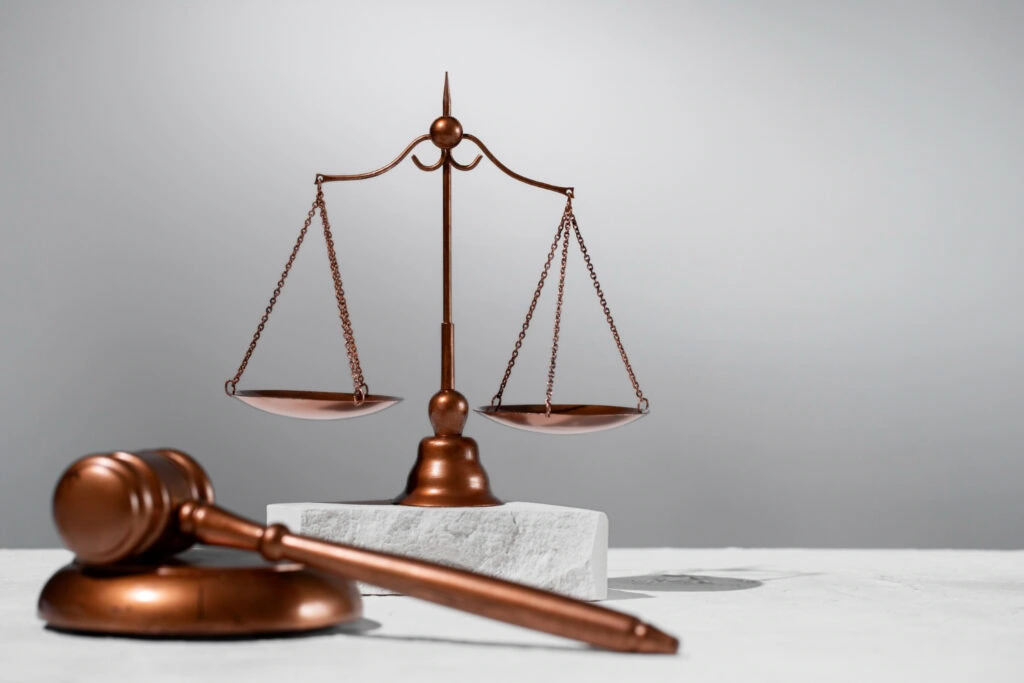Understanding legal processes can be daunting, especially when faced with unfamiliar terms. In California, one crucial step in the legal journey is the arraignment. Let’s break down an arraignment and what you can expect during this phase.
Definition of Arraignment
What is an arraignment? An arraignment is a formal court proceeding where the defendant is informed of the charges brought against them. It marks the beginning of the criminal court process and is a vital step in ensuring a fair trial.
This pivotal moment marks the commencement of the criminal court process, serving as the gateway to the intricate legal journey ahead.
Understanding the profound significance of the arraignment is essential, as it not only initiates the legal proceedings but also plays a vital role in safeguarding the principles of justice and ensuring a fair trial.
Understanding the Process of Arraignment
Arraignment typically occurs shortly after the arrest, allowing the accused to be informed promptly of the charges. The primary purpose is to ensure the defendant understands the nature of the allegations and establish their legal representation.
Legal Rights
During the arraignment, defendants are informed of their Miranda rights, which include the right to remain silent and the right to an attorney. This ensures a fair legal process.
- Right to Remain Silent: Defendants can choose not to answer questions, protecting themselves from self-incrimination.
- Right to an Attorney: Defendants have the right to legal representation, crucial for understanding legal implications and making informed decisions.
Entering a Plea
The arraignment offers the chance to enter a plea, shaping the case’s direction:
- Guilty: Admitting responsibility, leading to sentencing.
- Not Guilty: Denying charges, triggering trial preparations.
- No Contest: Not admitting guilt but not contesting charges, often chosen for civil implications.
Before making this critical decision, it is imperative for the defendant to consult with their attorney. Legal professionals can provide insights into the potential consequences of each plea and guide the accused in making the choice that aligns with their best interests.
Setting Bail
The judge determines bail during the arraignment, considering factors like charge severity, criminal history, and community ties:
- Severity of Charges: More serious charges may result in higher bail or denial.
- Criminal History: A clean record may improve bail chances.
- Ties to the Community: Strong ties increase the likelihood of bail approval.
Bail decisions are crucial as they can impact the defendant’s freedom during the legal proceedings. The accused should have legal representation to present a compelling case for bail.
Scheduling Future Proceedings
After the plea is entered, the court ensures an organized and timely legal process by setting dates for subsequent hearings and trials.
These dates are critical milestones that dictate the pace of the case. Missing court appearances can have serious consequences, including the issuance of warrants or other legal complications.
The defendant must stay informed about these dates and comply with court requirements, reinforcing the importance of maintaining open communication with their legal counsel.
Unique Features of Arraignment in California
California’s arraignment process stands out due to distinctive features prioritizing efficiency, accessibility, and education, shaping a unique experience within the Golden State’s legal system.
Swift Legal Action
In the Golden State, time is of the essence. California mandates that in-custody defendants face arraignment within a stringent 48-hour window post-arrest.
This swift turnaround reflects the state’s commitment to expeditious legal proceedings and minimizes unnecessary delays, ensuring a prompt initiation of the legal process.
Attorney Access and Visitation
Recognizing the pivotal role of early legal counsel, California grants in-custody defendants the right to meet with their defense attorneys even before arraignment.
This distinctive feature underscores the state’s dedication to providing immediate legal support. By facilitating pre-arraignment consultations, California ensures that defendants can make informed decisions immediately, promoting a fair and just legal experience.
Flexibility in Representation
California introduces a level of flexibility in attorney representation. For certain criminal cases, represented defendants may have their attorneys appear.
However, for felony matters, a personal presence is generally required during key stages, including arraignment. This careful balance ensures the integrity of the legal process while accommodating the practicalities of attorney representation.
Financial Support for Legal Representation
A notable facet of a California arraignment is the state’s commitment to providing legal representation regardless of financial constraints. Defendants facing financial challenges can rest assured that the court will appoint legal counsel free of charge.
This commitment is a cornerstone of equal access to justice, reinforcing that financial limitations should never obstruct an individual’s right to a fair legal defense.
Educational Emphasis
The California arraignment transcends a mere procedural step; it stands as an educational forum. The presiding judge takes the time to inform the defendant about the charges and explain their constitutional rights.
This emphasis on education ensures that defendants are well-informed, fostering a clearer understanding of the legal landscape.
By empowering defendants with knowledge, California’s arraignment process actively involves them in their defense, laying the foundation for a more transparent and participatory legal journey.
Conclusion
California’s arraignment process goes beyond the ordinary. With its swift legal action, emphasis on early attorney access, and flexible representation, the state ensures that the legal journey begins on a foundation of fairness, accessibility, and clarity for all defendants.
In this situation, seeking legal counsel is essential to ensure your rights are protected throughout the proceedings.










